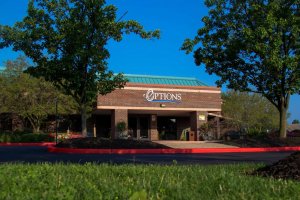Mixing Alcohol With Other Drugs
Mixing Alcohol And Other Substances
As the most commonly used intoxicant in the United States (and much of the world), alcohol is very likely to be mixed with any number of legal and illicit drugs. Because alcohol is a highly reactive substance that impacts many different bodily systems, it is also very likely to encounter any other substances in the body and react with them.
In some cases (such as with many Opioids), alcohol magnifies and amplifies the effects of the other medication; this is often to a dangerous level. In other cases (including those of a number of prescription medications), alcohol will partially or fully negate the impact of the other drug; this can have equally drastic consequences. Sometimes, alcohol will react with another drug (a well-known example being Cocaine) and create impacts that are entirely different from either of the original substances.
Because so many of the interactions between drugs and alcohol are dangerous, it is very important that you never mix alcohol with any drugs without first consulting a physician. If you are on a prescription but find that you are unable to stop drinking in order to take it, you may need help. Find a rehab facility now that can help you deal with an alcohol use disorder.
Online Addiction Counseling
Get professional help from an online addiction and mental health counselor from BetterHelp.
- Access to Therapy 24/7
- Easy Online Scheduling
- 20,000+ Licensed Therapists
Paid Advertising. We may receive advertising fees if you follow links to the BetterHelp site.
Substances Commonly Mixed With Alcohol
Adderall
People mix alcohol with Adderall to lessen the depressive symptoms of alcohol. A common myth states that combining Stimulants with Depressants is okay because the 2 “cancel each other out.” This misconception is based on a misunderstanding of how alcohol and Adderall affect the mental and physical systems of the body when used simultaneously. The combined actions of these 2 drugs can actually increase the negative effects that both drugs have on the body, causing severe health risks. Combining Stimulants with alcohol may cause an individual to consume larger amounts of alcohol than the body can manage, resulting in an overdose or other complications. Alcohol and Adderall have negative effects when combined on the heart, including:
- Accelerated heart rate
- Arrhythmia
- Increased blood pressure
- Risk of heart attack, stroke, or other heart disease
It is highly dangerous and risky to consume Alcohol while taking Adderall.
Antibiotics
There are many different types of Antibiotics, each of which will interact with alcohol differently. It is very important to consult with a physician and carefully read all labels. The biggest risk to mixing alcohol and Antibiotics is liver damage, as both are metabolized in the liver. Other common reactions include nausea, dizziness, vomiting, tiredness, increased heart rate, and shortness of breath. Additionally, many Antibiotics will not work effectively in the body if one consumes alcohol while taking them.
Antidepressants
Antidepressants and alcohol magnify the impacts of each other, making users of both feel more intoxicated than they would otherwise. Alcohol can also negate the effect of the Antidepressant, eliminating the desired impacts and possibly limiting the success of treatment. This combination can also cause unexpected and extreme emotions.
Antihistamines
Alcohol can reduce the effectiveness of Antihistamines if the body chooses to metabolize the alcohol before the Antihistamine. Alcohol may cause more severe side effects when mixed with certain Antihistamine drugs.
Cocaine
There is a widespread myth that Cocaine and alcohol cancel each other out, but that is far from the truth. Alcohol and Cocaine combine in the body to form a third substance, Cocaethylene. Cocaethylene causes the highest level of cardiovascular activity of any drug, which puts extreme pressure and stress on the heart and often leads to cardiac arrest and death.
Common Questions About Rehab
Energy Drinks/Caffeine
These drinks trick your body into thinking it is less tired and intoxicated than it truly is, leading to potentially dangerous levels of alcohol consumption. These drinks also dehydrate the body, increasing the risk of alcohol poisoning and the severity of hangovers. Those who drink alcohol with Caffeine are more than twice as likely to be injured, require medical attention, or accept a ride from an intoxicated driver than those who drank alcohol without Caffeine.
Looking for a place to start?
Join the thousands of people that have called a treatment provider for rehab information.
Free and confidential
Available 24/7
Access to professional treatment
Ecstasy
Alcohol reduces the euphoric feeling that Ecstasy causes, and combining the 2 puts a tremendous strain on the kidneys. Mixing alcohol with Ecstasy causes dangerous dehydration. Most Ecstasy-related deaths are the result of mixing the drug with alcohol. Furthermore, both drugs lower inhibitions on their own — an effect that only increases when taken together. Concurrent use of alcohol and Ecstasy may result in risky behavior like taking additional drugs or having unprotected sex. Since people may feel less impaired on alcohol when combined with Ecstasy, users are at much greater risk of overdose or alcohol poisoning. Users are also more likely to use more of either substance when combined, possibly resulting in heart failure, high blood pressure, seizures, loss of consciousness, panic attacks, and fainting. Ecstasy is especially dangerous because Ecstasy pills are not usually pure MDMA; they are often combined with other substances. Therefore it may be difficult for the user to determine what they are actually consuming with alcohol, which can increase the risk of overdose as well.
Legal And Illicit Opioids
Mixing alcohol with Opioids such as Heroin, Vicodin, Fentanyl, Percocet, and more is extremely dangerous. Alcohol and Opioids magnify the depressive effects of each other, leading to potentially fatal sedation and respiratory failure. The most life-threatening side effect of combining alcohol with Opioids is depressed breathing. Without enough oxygen the brain will begin to shut down organ systems, and the person can eventually suffer brain damage or death due to lack of oxygen. These 2 types of drugs can also cause serious liver damage if mixed.
Combining alcohol with Opioids can lead to other side effects as well, such as:
- Nausea and vomiting
- Dehydration
- Changes in blood pressure
- Irregular heart rate and rhythm
- Cardiovascular instability
- Dizziness or loss of coordination
- Marked disinhibition
- Abnormal behavior
- Loss of consciousness
- Respiratory arrest
- Coma
Marijuana
Mixing Marijuana and alcohol can cause severe effects, including severe intoxication, dizziness, vomiting, paranoia, and decreased functioning. Marijuana suppresses the gag reflex and may leave intoxicated individuals unable to throw up, therefore causing alcohol poisoning. The overlap of these 2 substances can result in feeling numb, dizzy, losing track of time and space, and the impairment of rational thinking. More dangerously, the result of combining Marijuana with alcohol can result in major impacts on the central nervous system. The most common side effects include:
- Changes in emotional behavior
- Compromised judgment
- Decreased attention, perception, and memory
- Impaired motor coordination, thinking, and problem solving
- Memory loss
Hallucinogens
It is very dangerous to mix alcohol with Hallucinogenic drugs because the contents of the latter can be adulterated. Mixing alcohol with Hallucinogens may cause adverse side effects, such as nausea, vomiting, and other gastrointestinal effects. Severe depression is often a side effect that occurs while combining alcohol with Hallucinogens. This severe depression may be of pronounced duration and result in suicidal thoughts. Alcohol also exacerbates the risk-taking behavior often seen in individuals using Hallucinogens. This often leads to legal, financial, and social consequences. Mixing alcohol with Hallucinogens can also cause frightening and traumatic “bad trips.”
Meth
Mixing alcohol with Meth is one of the most dangerous possible combinations. The combination of alcohol and Meth puts extreme pressure on the heart and greatly raises blood pressure. Violent behavior and sexual promiscuity are very common with both of these substances. This mix also causes significant kidney damage and worsens hangovers.
Check if my insurance covers rehab
Addiction Center is not affiliated with any insurance.
Treating Addiction To Alcohol And Other Substances
In many cases, the same individual may be addicted to alcohol and other substances at the same time. This poses extra challenges during treatment because the patient will have more specialized needs. In particular, detox can be especially challenging and dangerous. Withdrawal symptoms from all substances may be present and exaggerated. It is critical that patients who are addicted to alcohol and other substances detox under the supervision of a professional because of the many serious and potentially fatal impacts that can occur. Even after initial detox is completed, treatment professionals will have to deal with all addictions at once; this can be difficult. After leaving treatment, the patient is advised to attend support groups for all substances — groups like Alcoholics Anonymous and Narcotics Anonymous.
Find Treatment
If you’re unable to stop drinking long enough to take your prescription medication, there is help available. If you’re mixing alcohol with illicit drugs, there is support. Contact a treatment provider to find treatment center options.
Published:
Author
Jeffrey Juergens

-
Jeffrey Juergens earned his Bachelor’s and Juris Doctor from the University of Florida. Jeffrey’s desire to help others led him to focus on economic and social development and policy making. After graduation, he decided to pursue his passion of writing and editing. Jeffrey’s mission is to educate and inform the public on addiction issues and help those in need of treatment find the best option for them.
- More from Jeffrey Juergens
Reviewed by Certified Addiction Professional:
Theresa Parisi

Theresa Parisi is a Certified Addiction Professional (CAP), Certified Behavioral Health Case Manager (CBHCM), and International Certified Alcohol and Drug Counselor (ICADC) with over 12 years of experience in the addiction treatment field.
- More from Theresa Parisi
Sources


Recovery Starts Today
Call Now For Addiction Support



Newport Institute for Young Adults
Monticello , MN


Recovery Centers of America at St. Charles
St. Charles , IL

Newport Academy – Teen Treatment Center
Saint Cloud , MN

Banyan Treatment Centers – Chicago
Chicago , IL

Timberline Knolls Treatment Center for Women
Lemont , IL

Banyan Treatment Centers – Illinois
Gilman , IL


Recovery Centers of America at Indianapolis
Indianapolis , IN

Boca Recovery Center – Indiana
Bloomington , IN

Options Behavioral Health Hospital
Indianapolis , IN

Ridgeview Behavioral Hospital
Middle Point , OH

